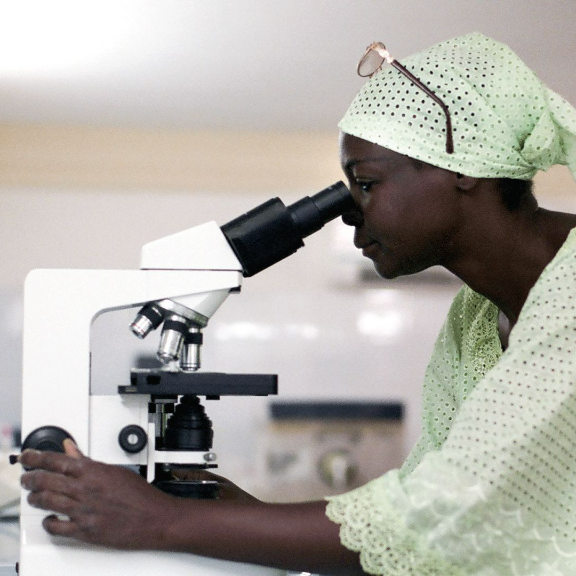Investing in Research and Development
Investing in Research and Development (R&D) in the Kenyan Sugar Industry is strategic for fostering innovation, improving competitiveness, and enhancing sustainability. To delve deeper, this detailed guide emphasizes the need for a systematic and collaborative approach to R&D, with particular attention to potential partnerships with the Kenya Agricultural and Livestock Research Organization (KALRO) and its Sugar Research Institute.
Assessing the Research Landscape
Industry Challenges and Opportunities:
- Undertake a SWOT analysis (Strengths, Weaknesses, Opportunities, Threats) to identify the most pressing research areas that can provide sustainable solutions to industry challenges or capitalize on untapped opportunities.
Global Trends Analysis:
- Regularly review and analyze global sugar industry trends to ensure that R&D initiatives are in line with international best practices and to take advantage of the latest scientific breakthroughs.
R&D Goal Setting
Strategic Objectives Development:
- Articulate long-term and short-term R&D goals that align with broad industry challenges, market demands, and the sustainable development goals (SDGs) pertinent to the agricultural sector.
Innovation Roadmap:
- Create an innovation roadmap that outlines key milestones and timelines for achieving these objectives, carefully considering potential technological and methodological innovations.
Building Research Infrastructure
Investing in High-Caliber Facilities:
- Allocate significant resources to construct facilities with advanced research labs, test fields, and pilot processing plants that mimic industrial conditions to test new methods and technology.
Access to Leading-Edge Equipment and Technology:
- Ensure that researchers have access to cutting-edge tools — from genomics platforms to advanced analytical chemistry instruments for biomass and product analysis.
Recruiting and Cultivating Talent
Competitive Hiring Process:
- Develop a talent acquisition strategy to attract world-class researchers with domain expertise relevant to priority research areas, such as genomic selection or process optimization.
Continuous Learning Culture:
- Foster a learning culture through ongoing professional development opportunities, including conferences, workshops, and publishing in academic journals.
Securing Diverse Funding Channels
Financial Strategy Development:
- Create a diverse funding portfolio that may include private investors, government subsidies, international grants, and industry partnerships to finance R&D initiatives.
Cost Control and Allocation:
- Establish rigorous financial management policies to control costs and allocate funding to priority research areas that promise the highest return on investment.
Fostering Partnerships
Engagement with KALRO-Sugar Research Institute:
- Approach the KALRO-Sugar Research Institute to explore collaborative ventures. KALRO’S comprehensive reach in agricultural research can provide valuable insights and resources.
- Discuss joint research projects, shared facilities, and staff exchange programs to leverage KALRO's expertise and infrastructure.
- Explore KALRO's current research portfolio and ongoing projects to identify opportunities for collaboration or support.
Establishing Synergistic Alliances:
- Seek out mutually beneficial partnerships with local universities, international research bodies, and other stakeholders within the sugar industry.
- Consider collaboration not just on scientific and technical aspects but also on policy research to anticipate and shape future regulatory trends.
Cultivating Innovation and Intellectual Property
Innovative Product Pathway:
- Integrate R&D efforts with the product development pipeline, ensuring that research feeds into the creation of new products or the improvement of existing ones.
IP Management Framework:
- Develop a robust intellectual property management framework that not only protects innovations but also ensures compliance with international IP protocols, including the TRIPS agreement.
Integrating R&D with Core Business Functions
Inter-Departmental Integration:
- Ensure seamless communication and integration between R&D and departments such as marketing, sales, and production to align R&D projects with market demand and practical applicability.
Agile Process Orientation:
- Adopt agile methodologies within the R&D department to adapt quickly to market feedback and evolving project requirements.
Upholding Regulatory Compliance and Ethics
Environmental and Regulatory Affairs Unit:
- Establish a dedicated unit to manage regulatory affairs, ensuring all R&D activities adhere to national and international regulations.
Ethical Standards Commitment:
- Commit to high ethical standards, including environmental responsibility, social impact considerations, and respect for traditional knowledge.
Implementing Robust Monitoring and Evaluation
Data-Driven Evaluation:
- Invest in R&D information systems for real-time data collection, monitoring of experiments, and evaluation of research outcomes against KPIs and industry benchmarks.
Adaptive Research Designs:
- Encourage the use of adaptive research designs that allow for flexibility and iterative learning, enabling teams to refine hypotheses and methodologies based on emerging data.
Advancing Sustainable and Inclusive R&D
Sustainability Focused Innovation:
- Ensure that sustainability is a core principle driving R&D projects, including efforts to reduce environmental impact and improve resource efficiency within the industry.
Community-Centric Research:
- Conduct participatory R&D, actively involving sugarcane farmers in the research process to ensure innovations are practical and adapted to local conditions.
By deploying these detailed strategies and fostering a robust partnership with KALRO-Sugar Research Institute, your investment in R&D can help accelerate innovation, improve sugar yield and quality, reduce costs, and ensure the long-term sustainability and competitiveness of the Kenyan Sugar Industry. This endeavor will also contribute to national development goals by driving technological advancements, enhancing job creation, and promoting sustainable agricultural practices.
Please download the file here

